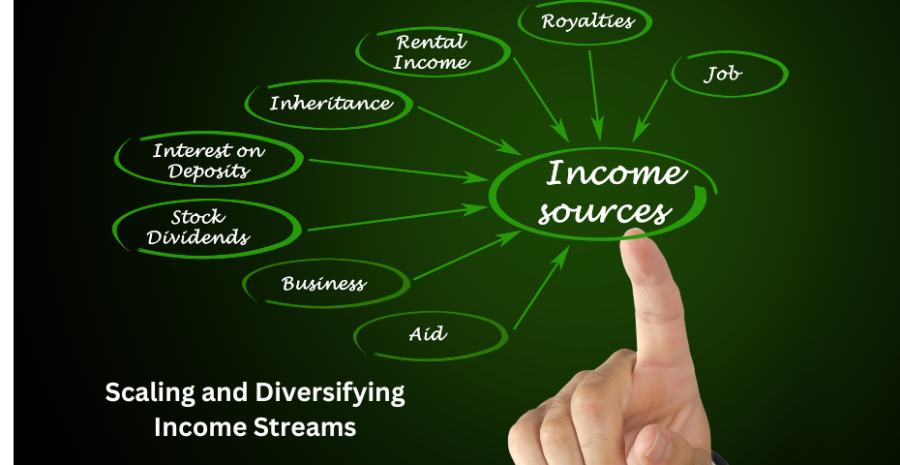
Do Bloggers Really Make Good Money? A Deep Dive Into Blogging Income
.png)
Blogging has transformed from a personal journaling activity into a legitimate career option for thousands of people worldwide.
But the big question remains: Do bloggers really make good money? With successful bloggers boasting substantial incomes and many others struggling to get noticed, the blogging income spectrum can seem confusing and even misleading.
This comprehensive guide explores the realities of blogging income, breaking down the factors that contribute to profitable blogs and addressing common misconceptions.
Whether you're considering starting a blog for side income, pursuing a passion, or aiming to build a full-fledged business, this article will offer insights into what it takes to earn a sustainable income in the blogging world today.
We’ll go through 10 key factors that can influence a blog’s earning potential, from choosing the right niche and understanding monetization methods to managing expenses and building an engaged audience.
By the end, you’ll have a clear view of the blogging industry and the potential financial rewards it can offer.

Choosing a profitable niche is one of the most crucial steps in earning money as a blogger.
Popular niches like personal finance, health, and lifestyle tend to attract larger audiences and higher ad revenue, but competition can be stiff.
A profitable niche should balance your interests, audience demand, and the potential for various revenue streams.

To make a mark and stand out from millions of blogs, a distinct brand and authentic voice are essential.
A unique brand identity helps your content resonate with readers, builds trust, and encourages repeat visits.
Branding goes beyond logos and colors; it encompasses the values and persona of your blog.

SEO (Search Engine Optimization) is a core skill for any successful blogger.
Ranking well on Google can bring consistent, free traffic, which translates to potential revenue from ads, products, or affiliate links.
SEO includes keyword research, on-page optimization, and understanding Google’s algorithm updates.

Audience growth is foundational for any blog’s earning potential.
Bloggers who develop a loyal audience can diversify their income by selling products, offering memberships, or monetizing via ads.
Building an audience requires consistent content creation, engagement on social platforms, and perhaps even collaborations with other bloggers.

Ad revenue is one of the simplest ways to start earning as a blogger.
Ads can be set up via platforms like Google AdSense or through ad networks that focus on high CPMs (cost per thousand impressions).

Affiliate marketing is a popular income source for many bloggers, allowing them to earn commissions by promoting products or services.
Successful affiliate marketers often write product reviews, create tutorials, or feature links in their articles.
With the right products and audience alignment, affiliate marketing can become a primary income stream.

Many top bloggers increase their income by creating and selling digital products like e-books, online courses, and printable resources.
These products not only provide a way to earn directly from readers but also establish credibility in your niche.
Digital products often provide higher profit margins compared to ads or affiliate links.

Some bloggers create exclusive content available only to subscribers or members, adding an additional revenue stream.
Membership models, often hosted on platforms like Patreon or Substack, allow bloggers to monetize their most loyal audience members.
Premium content can include detailed guides, insider tips, or even access to a private community.

Once a blog gains a significant audience, brand partnerships and sponsorships become a lucrative option.
Sponsored posts or brand collaborations allow bloggers to earn income by promoting products or services directly within their content.
For high-traffic bloggers, brand partnerships can be a substantial source of income.

Successful bloggers understand the importance of income diversification. Instead of relying on a single revenue source, they combine various streams like ad revenue, affiliate marketing, product sales, and sponsored content. By diversifying, bloggers reduce income volatility and build a more resilient business.
In conclusion, blogging can indeed be a profitable career—but achieving significant income requires dedication, strategy, and a clear understanding of the market.
Bloggers who make good money tend to excel in several areas, from content creation and SEO to audience engagement and strategic monetization.
While it may take time to build, the financial and personal rewards of blogging can be substantial, especially if you create valuable content that resonates with readers.
For those willing to invest time, effort, and continuous learning, blogging offers a unique opportunity to build a flexible, fulfilling, and profitable business on your terms.
.png)
About: Andries vanTonder (65)
Over 45 years selfemployed
He is a Serial Entrepreneur, an Enthusiastic supporter of Blockchain Technology and a Cryptocurrency Investor
Find me: Markethive Profile Page | My Twitter Account | My Instagram Acount | and my Facebook Profile.
